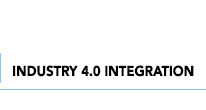Fictron Industrial Supplies Sdn Bhd
No. 7 & 7A,
Jalan Tiara, Tiara Square,
Taman Perindustrian Sime UEP,
47600 Subang Jaya,
Selangor, Malaysia.
No. 7 & 7A,
Jalan Tiara, Tiara Square,
Taman Perindustrian Sime UEP,
47600 Subang Jaya,
Selangor, Malaysia.
+603-8023 9829
+603-8023 7089
Fictron Industrial
Automation Pte Ltd
140 Paya Lebar Road, #03-01,
AZ @ Paya Lebar 409015,
Singapore.
+65 31388976
sg.sales@fictron.com
Automation Pte Ltd
140 Paya Lebar Road, #03-01,
AZ @ Paya Lebar 409015,
Singapore.
+65 31388976
sg.sales@fictron.com
China Is Too Big To Be Isolated
08 Oct 2019


View Full Size
Immediately after it was reported in September that NTT Docomo, Japan's biggest mobile carrier, would not offer phones from Huawei Technologies for use on its 5G network, the Chinese corporation announced its new products would ship without Google applications. These actions really point to the coming of a technologically divided world. The U.S. in May blacklisted Huawei due to national security concerns, imposing restrictions on sales of U.S. technologies, including Google's Android operation system, to the Chinese company.
With the U.S. Commerce Department having placed Huawei on what it calls the Entity List, the company's new phones likely will not come with popular apps such as Gmail, Chrome and Google Maps. Considering this situation, there is a strong strategic rationale for DoCoMo's decision. The Australian government has made a decision to keep out Huawei from supplying equipment for its 5G network. In New Zealand, the Government Communications Security Bureau has voiced national security concerns in regards to allowing Huawei to supply key 5G technologies.
It seems to be an alliance is growing among Asia-Pacific countries, basically U.S. allies, to block Huawei's infiltration into 5G wireless architecture. But a strategy to technologically isolate China is unlikely to work.
More and more African countries are inviting Huawei's entry into their telecom markets. Malaysian Prime Minister Mahathir Mohamad and Thai economy minister Pichet Durongkaveroj have said they are happy toward adopting Huawei equipment. Singapore has remained silent on the issue. Chinese 5G technologies are making steady inroads into most parts of the world, mainly nations joining President Xi Jinping's ''One Belt, One Road'' infrastructure building initiative, meant to connect countries across Asia, Africa and Europe.
The primary reason is simple: Huawei's 5G offerings are 15% to 30% cheaper than rival products provided by Nokia and Ericsson, according to the head of Huawei's Australian unit. The world is dividing itself into two groups: nations that reject competitive technologies to avoid presumed national security risks and those that prioritize upgrading economic infrastructure at lower costs.
Pro- and anti-Huawei spheres are emerging with huge implications for the future of the global economy. With the U.S. and China demonstrating few signs of trying to meet halfway on the Huawei issue, other countries are coming under pressure to take sides.
Alarmed by the prospect of facing a U.S. trade embargo on a broad range of parts and licenses, China has started stepping up its efforts to build a self-sufficient supply chain. HiSilicon, Huawei's semiconductor arm, has supposedly begun full-fledged operations to manufacture its Balong 5G chipsets, a market in which Micron Technology has been the dominant player. Huawei plans to launch as early as next spring its first smartphones running on its own Harmony OS, which the company boasts outperforms Google's Android.
The U.S. strategy to minimize the amount of Chinese equipment in 5G networks is having an unintended consequence: It is driving the world's second largest economy to build its own technological ecosystem, one that may possibly involve many other countries. A global supply chain that has evolved over many years cannot be easily reorganized. It may be true for now that Huawei cannot manufacture products without U.S. technologies or Japanese parts. But this must not be taken as proof that a strategy of containing China will work in the long run.
As of the end of April, about 130 countries had signed onto the Belt and Road. The total represents 5 billion consumers, or 60% of the global population. There is no ruling out the possibility that this group may in due course grow into a huge economic bloc four times larger than the Western World, including the U.S., Europe and Japan.
China is simply too big to be isolated.
In order to avoid splitting the world into two bitterly divided blocs, the U.S. and its allies should try to entice China to embrace the current world economic order, in which markets are ruled by law, not the party. The true aim of the Trans-Pacific Partnership multilateral trade pact that Trump pulled the U.S. out of in one of his first acts as president was to integrate China into international trade rules. It would probably be time to start envisioning a TPP for digital trade involving the U.S. as well.























